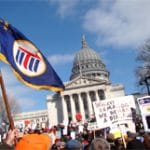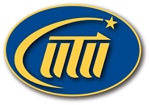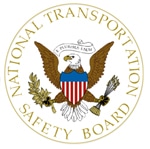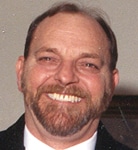
The application form printed in the January edition of the UTU News is the official scholarship application form and is the only one that will be accepted. If you need an application form, write to the address below, and include your UTU local or UTUIA local unit number.
Deadline
Applications must be received each year by the last business day in March.
Applications
Only one application may be submitted per student. Incomplete, photocopied or duplicate applications will not be accepted.
The application form printed in the traditional print version of the January edition of the UTU News is the official scholarship application form and is the only one that will be accepted. If you need an application form, write to the address below, and include your UTU local or UTUIA local unit number.
UTUIA SCHOLARSHIP PROGRAM
UNITED TRANSPORTATION UNION INSURANCE ASSOCIATION
24950 COUNTRY CLUB BLVD., STE. 340
NORTH OLMSTED, OH 44070-5333
Distribution
Fifty continuing $500 scholarships are awarded each year upon verification of enrollment for the fall term. The scholarships are prorated according to the number of UTU and UTUIA insurance members in each of nine districts. The 50 new scholarship winners for each academic year will be drawn at UTUIA Headquarters in North Olmsted after the deadline date. A listing of winner for this academic year will be published on this website and in the UTU News after May 1st.
Eligibility
Requirements of a UTUIA scholarship applicant are that he or she be a U.S. citizen, at least a high school senior or equivalent, and age 25 or under.
Effective with the 2012/2013 academic year, applicants must be associated with the UTUIA by either owning a UTUIA insurance policy, or by being the child or grandchild of a current UTUIA policyholder. Scholarship applicants must also be associated with the UTU by belonging to the union, or by being the child or grandchild of an active or lifetime UTU member.
Applicants also must be accepted for admittance or already enrolled for at least 12 credit hours per quarter or semester at a recognized institution of higher learning (university, college or junior college, nursing or technical school offering college credit). Graduate schools are not included. Families of full-time International officers are not eligible.
Previous scholarship winners are exempt from the new UTUIA policyholder connection requirement; they may renew their annual scholarship if otherwise eligible. This exemption is for the renewal of existing scholarships only, and all new applicants must meet the UTUIA and UTU association requirements above.
Awards
Scholarships are awarded on the basis of chance, not grades. A UTUIA scholar, however, is expected to maintain a satisfactory academic record to maintain the scholarship for the full four years.
Administration
The UTUIA Scholarship Committee decides whether individual scholarships should be continued or discontinued. Each successful applicant must provide annual proof of eligibility on or before a deadline set by the scholarship committee to qualify for a continuing award. The day-to-day management of the program is handled by the office of the UTUIA General Secretary and Treasurer.
Invest in the Chance of a Lifetime
The UTUIA Scholarship Program is an open program. All eligible students, regardless of previous grades or future plans that don’t happen to include college, are strongly urged to apply, to take five minutes to invest in the chance of a lifetime, the chance for a better future.
For additional information, click here.
 MADISON, Wis. – Twice the number of signatures needed to force a recall election of anti-union Wisconsin Gov. Scott Walker were delivered to state election officials Jan. 17.
MADISON, Wis. – Twice the number of signatures needed to force a recall election of anti-union Wisconsin Gov. Scott Walker were delivered to state election officials Jan. 17. UTU local treasurers must file Internal Revenue Service forms W-2 and W-3 forms for all employees receiving wages in 2011.
UTU local treasurers must file Internal Revenue Service forms W-2 and W-3 forms for all employees receiving wages in 2011. WASHINGTON – Warnings of speed violations have been issued by the National Transportation Safety Board, which urges unions, their members, carriers and the Federal Railroad Administration to work collaboratively to ensure compliance of train and engine crews with speed restrictions.
WASHINGTON – Warnings of speed violations have been issued by the National Transportation Safety Board, which urges unions, their members, carriers and the Federal Railroad Administration to work collaboratively to ensure compliance of train and engine crews with speed restrictions.
 James F. Carrico Sr., 61, former Indiana State Legislative Director of the United Transportation Union, died Jan. 4.
James F. Carrico Sr., 61, former Indiana State Legislative Director of the United Transportation Union, died Jan. 4.